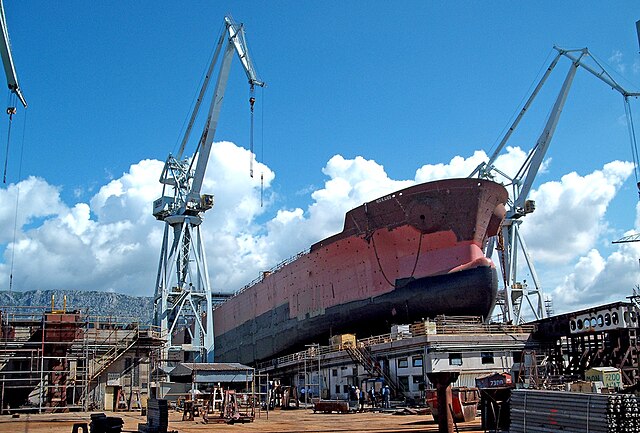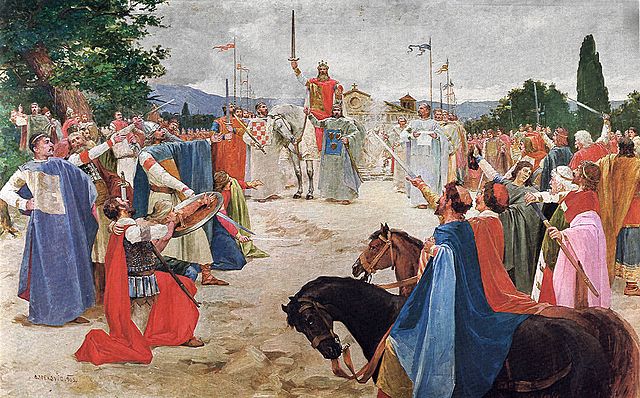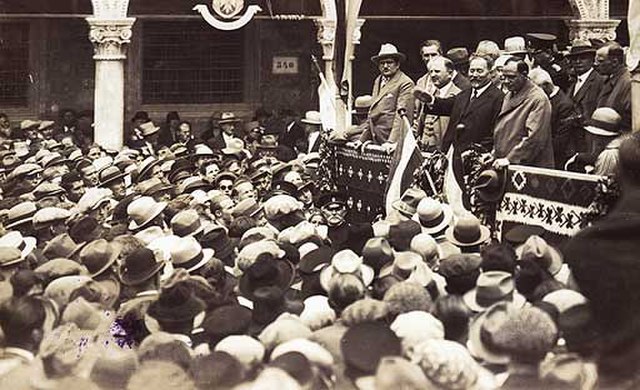The economy of Croatia is a developed social market economy. It is one of the largest economies in Southeast Europe by nominal gross domestic product (GDP). It is an open economy with accommodative foreign policy, highly dependent on international trade in Europe. Within Croatia, economic development varies among its counties, with strongest growth in Central Croatia and its financial centre, Zagreb. It has a very high level of human development, low levels of wealth inequality, and a high standard of living. Croatia's labor market has been perennially inefficient, with inconsistent business standards as well as ineffective corporate and income tax policy.
The city of Zagreb is the capital and financial centre of Croatia.
Zagreb Stock Exchange Palace in 1927
Oil refinery in Rijeka in the 1930s
A ship being built in Split, 2010
Croatia, officially the Republic of Croatia, is a country located at the crossroads of Central and Southeast Europe. Its coast lies entirely on the Adriatic Sea. Croatia borders Slovenia to the northwest, Hungary to the northeast, Serbia to the east, Bosnia and Herzegovina and Montenegro to the southeast, and shares a maritime border with Italy to the west. Its capital and largest city, Zagreb, forms one of the country's primary subdivisions, with twenty counties. Other major urban centers include Split, Rijeka and Osijek. The country spans 56,594 square kilometres, and has a population of nearly 3.9 million.
Coronation of King Tomislav by Oton Iveković
Ban Josip Jelačić at the opening of the first modern Croatian Parliament (Sabor), June 5, 1848. The Croatian tricolour flag can be seen in the background.
Mass protests in Zagreb against the unification of the State of Slovenes, Croats and Serbs with the Kingdom of Serbia in 1918.
Stjepan Radić, leader of the Croatian Peasant Party who advocated federal organisation of the Yugoslavia at the assembly in Dubrovnik, 1928. His death at the end of the same year as a result of an assassination in the National Assembly by NRS member, Serbian nationalist politician Puniša Račić, leads the country to a serious political crisis.








